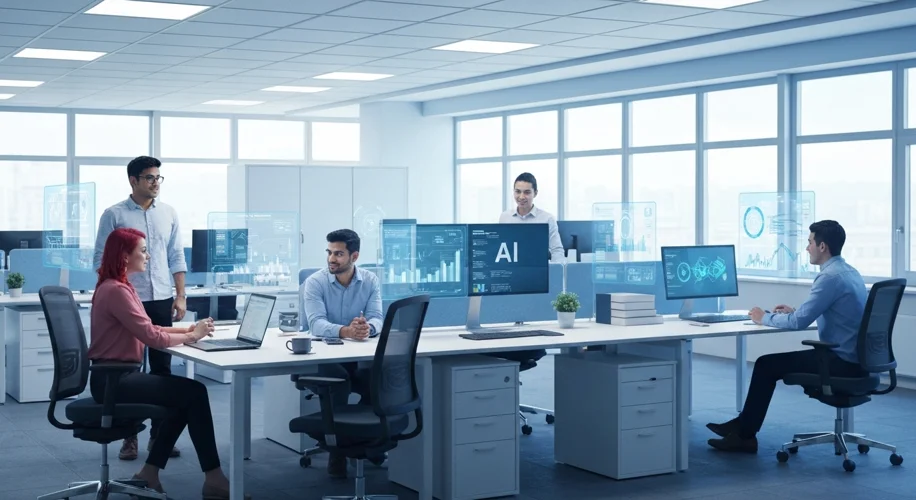The conversation around Artificial Intelligence and its impact on jobs isn’t new, but as AI capabilities rapidly advance, the ethical considerations surrounding job displacement demand our focused attention. From my vantage point as someone who’s spent decades in the tech industry, I’ve seen firsthand how innovation reshapes the employment landscape. Today, with AI’s increasing sophistication, we’re at a critical juncture.
It’s undeniable that AI can automate tasks previously done by humans. This isn’t just about factory floors anymore; AI is now writing code, analyzing data, and even contributing to creative processes. This efficiency brings immense benefits, but we must ask ourselves: what are the ethical implications when these tools become so powerful that they can, in many instances, replace human workers?
The core ethical dilemma lies in balancing technological progress with human well-being. As AI takes on more roles, there’s a real concern about widespread job displacement. This isn’t about fearing AI, but about thoughtfully managing its integration into our economy. The potential consequences for individuals and communities, especially those whose livelihoods depend on skills that are becoming automated, are significant.
So, what skills will be most valuable in this evolving job market? I believe the focus will shift even more towards uniquely human abilities: critical thinking, complex problem-solving, creativity, emotional intelligence, and adaptability. Roles that require deep interpersonal skills, strategic oversight, and nuanced judgment are less likely to be fully automated in the near future.
This brings us to the question of policy and societal adaptation. How can we mitigate the negative impacts of AI-driven job displacement? Several avenues are being explored, and it’s crucial we consider them:
- Reskilling and Upskilling Initiatives: Investing in education and training programs that equip the current workforce with skills relevant to an AI-augmented economy is paramount. This means fostering continuous learning.
- Support for Transitioning Workers: As jobs change, we need robust social safety nets and transition assistance for those whose roles are impacted. This could include enhanced unemployment benefits, career counseling, and support for entrepreneurship.
- Ethical AI Development Frameworks: Encouraging or mandating that AI systems are developed with human impact in mind is vital. This involves considering the societal consequences from the outset, not as an afterthought.
From my perspective, the future of work isn’t necessarily one without jobs, but one where the nature of jobs changes dramatically. It requires a proactive and collaborative approach from technologists, policymakers, educators, and business leaders. We need to foster an environment where AI serves humanity, enhancing our capabilities rather than simply replacing us.
The key question isn’t if AI will change the job market, but how we will guide that change ethically and equitably. It’s a complex challenge, but by focusing on human skills, investing in education, and developing thoughtful policies, we can navigate this transition responsibly and build a future where technology and humanity thrive together.

